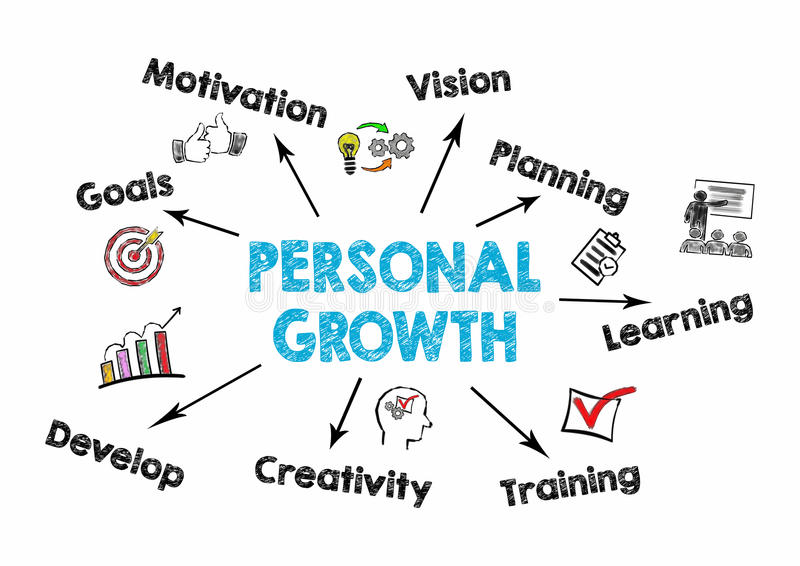Finding meaning and purpose in life starts with knowing what truly matters to you. A life full of meaning is built by aligning your actions with your core values and goals. This connection helps create a clear path that feels worthwhile every day.

Meaning grows when people build strong relationships and contribute to things bigger than themselves. Facing challenges with a mindful approach also helps deepen a sense of purpose.
Everyone can create habits that support their well-being and satisfaction. Understanding how to make these choices can lead to lasting fulfillment and a sense of progress in life.
Key Takeaways
- Align your actions with what you value most.
- Build strong connections and focus on growth.
- Develop daily habits to support lasting purpose.
Snippet description:
This article explains how to create a meaningful life by focusing on values, goals, relationships, and habits that lead to lasting purpose and fulfillment.
Understanding Meaning and Purpose
Meaning and purpose connect deeply with what people believe and value. They influence decisions, actions, and how people view their own lives and challenges.
Defining a Meaningful Life
A meaningful life is one where a person feels their actions and choices matter. It means experiencing a sense of significance beyond daily routines. This often involves contributing to others, learning, or growing in some way.
People find meaning through relationships, work, or hobbies that match their values. It’s not about always feeling happy but about feeling that life has direction and impact.
The Role of Values in Shaping Purpose
Values act as guides for what a person sees as important. They shape goals, choices, and behavior. When a person builds their life around their core values, they create a more focused and driven sense of purpose.
For example, if honesty is a central value, then living truthfully becomes a clear purpose. Values like kindness, creativity, or freedom can also form the foundation of purposeful actions.
Differentiating Meaning From Happiness
Meaning and happiness are related but different. Happiness is usually about feeling good in the moment. It depends on pleasure, comfort, or positive experiences.
Meaning often lasts longer and comes from living according to values and purpose. A person can feel meaning even during hard times when happiness might be low.
| Aspect | Meaning | Happiness |
|---|---|---|
| Focus | Long-term significance | Short-term feelings |
| Source | Purpose and values | Pleasure and comfort |
| Experience | Can occur during struggles | Linked to positive events |
Identifying Your Core Values
Finding core values means looking closely at what someone truly believes in, what drives them inside, and how they can act in ways that match those beliefs. This process helps guide decisions and build a strong sense of purpose.
Reflecting on Personal Beliefs
Personal beliefs are ideas a person holds about what is right, important, or true. To identify core values, one should ask questions like: What matters most to me? or What principles do I refuse to break? Writing down answers helps make these beliefs clear.
People often discover values by examining key life experiences. For example, moments of pride, anger, or sadness may point to what they really care about. Reflecting on admired people or role models also reveals important beliefs.
Recognizing Intrinsic Motivations
Intrinsic motivations come from inside a person, not from outside rewards or pressures. These are feelings of satisfaction, joy, or fulfillment that occur when doing a specific activity or pursuing a goal.
To spot these motivations, someone should think about times they felt energized or fully engaged. This might be creating art, helping others, or solving problems. Recognizing intrinsic drives helps uncover core values linked to happiness and meaning.
Aligning Actions With Values
Once someone knows their core values, they can check if daily actions match them. If a person values honesty, they should act truthfully, even when it’s difficult. This alignment builds trust in oneself.
Adjusting habits and choices to align with values creates consistency. Making a simple list showing actions that support or conflict with values can help keep this alignment clear. It also helps guide future decisions toward a purposeful life.
Setting Purposeful Goals
Setting purposeful goals means defining clear aims that guide daily choices, energy, and time. It involves knowing what matters personally, breaking large ambitions into smaller steps, and staying flexible as one’s priorities change.
Developing a Vision for Your Life
A clear vision helps people understand what they really want in life. It starts by reflecting on values, passions, and strengths. Writing down what success looks like in different areas—such as career, relationships, health—makes the vision more concrete.
This vision acts as a compass. When decisions arise, it helps determine which paths align with long-term hopes. A strong vision motivates during hard times because it ties effort to meaningful outcomes. It is helpful to revisit and refine the vision regularly to keep it relevant.
Creating Achievable Milestones
Breaking down a large goal into smaller milestones makes the process manageable. Milestones are specific targets with clear deadlines. For example, if the goal is to write a book, a milestone could be completing one chapter each month.
Setting milestones boosts confidence by showing progress step-by-step. It also helps identify obstacles early, allowing time for adjustments. Using lists or calendars aids in tracking these targets and maintaining focus.
Adjusting Goals Based on Growth
As people grow, their interests and abilities change. Goals must adapt to reflect this change. Sometimes, a goal set years ago no longer fits current values or skills.
Regular reviews—such as monthly or quarterly check-ins—help assess if goals are still meaningful. Changing goals is not a sign of failure but of learning and self-awareness. Adjusting goals ensures ongoing motivation and a better fit with personal development.
Cultivating Mindful Self-Awareness
Developing self-awareness means paying close attention to thoughts, feelings, and actions. It requires regular self-check-ins and honest evaluation of personal qualities. This builds a clearer understanding of how one relates to the world and makes choices.
Practicing Daily Reflection
Daily reflection helps people understand their experiences and emotions better. One simple method is to spend 5-10 minutes each evening recalling the day’s events. Writing down what went well, what felt wrong, and why can clarify thoughts.
It is helpful to ask questions such as:
- What did I learn today?
- How did I react to challenges?
- Did my actions align with my values?
Over time, this habit reveals patterns in behavior and feelings. It also points out areas to improve or change, making decisions and responses more thoughtful.
Understanding Your Strengths and Weaknesses
Knowing one’s strengths allows a person to build confidence and focus on what they do best. It can lead to better goal setting and choosing tasks that fit their skills. To identify strengths, they might ask friends for feedback or look for repeated successes.
Recognizing weaknesses is just as important. It helps avoid situations where they might struggle or fail. Being honest about flaws opens the door to growth through learning or asking for help.
One way to track this is by listing strengths and weaknesses in two columns, then creating a plan to improve weak areas and use strengths more often. This clear view supports smarter choices in life and work.
Building Meaningful Relationships
Meaningful relationships need trust, kindness, and shared values. They grow when people invest time and energy in real connections, support each other, and contribute to their communities.
Fostering Deep Connections
Deep connections start with honest communication. People who listen well and ask thoughtful questions usually build stronger bonds. Sharing feelings and personal stories helps others understand one’s true self.
Trust is key. Being reliable and consistent makes others feel safe. It’s important to show empathy and respect even during disagreements.
Spending quality time together creates memories and strengthens ties. Activities like shared hobbies or simple conversations boost closeness.
Surrounding Yourself With Positive Influences
Being around supportive, optimistic people affects one’s mindset and behavior. Positive influences encourage growth, healthy habits, and better choices.
It helps to identify individuals who show encouragement, kindness, and respect. These people inspire confidence and motivate to overcome challenges.
Removing or limiting contact with toxic or negative individuals is equally important. Toxic relationships drain energy and lower self-esteem.
A network of positive friends, family, and mentors forms a strong foundation for a meaningful life.
Giving Back to Others
Helping others creates a sense of purpose and connection. Volunteering time or skills benefits communities and builds valuable relationships.
Acts of kindness, large or small, improve well-being for both giver and receiver. Examples include mentoring, donating, or simply being there for someone in need.
Giving back also teaches gratitude and humility. It reminds people of their strengths and the impact they can make.
Consistent giving encourages a life focused on more than just personal gain.
Contributing to Something Greater
Finding ways to add value beyond personal goals helps build a meaningful life. This often involves helping others or working toward shared goals that benefit a broader group.
Exploring Altruistic Opportunities
Altruism means acting to help others without expecting a reward. People can look for local charities or nonprofits where their skills match the needs. For example, someone good at teaching might volunteer to tutor children.
Helping in big or small ways creates a sense of connection and purpose. Even donating items or money supports causes that align with one’s values. Choosing consistent actions, like weekly volunteering, strengthens commitment.
Writing down specific causes that matter makes it easier to find fitting opportunities. It also helps measure the impact of one’s contributions and see the difference made over time.
Engaging With Your Community
Being active in the community fosters belonging and shared purpose. This can mean joining local clubs, participating in neighborhood events, or attending town meetings.
Simple efforts, such as helping neighbors or supporting local businesses, build strong bonds. Taking part in community projects like cleanup days or food drives also creates visible positive change.
Effective engagement requires listening to community needs and working with others respectfully. It helps to set clear goals, communicate openly, and value diverse perspectives for lasting results.
Navigating Transitions and Challenges
Life often brings changes and challenges that can feel overwhelming. Finding ways to accept these moments as chances to grow and building strength to move past difficulties are key to living with purpose.
Embracing Change as Growth
Change is a natural part of life. Instead of fearing it, individuals can see change as an opportunity to learn new skills or discover different paths.
Adjusting to change may require new habits or a shift in thinking. For example, moving to a new city can be stressful, but it also offers a chance to meet new people and develop independence.
People who accept change tend to build confidence. They focus on what they can control, like setting small goals to adapt step by step. This helps turn uncertainty into progress and personal growth.
Overcoming Setbacks With Resilience
Setbacks are common and can stall progress. Developing resilience means bouncing back without losing motivation or self-belief.
Some strategies to build resilience include:
- Reframing problems as temporary obstacles
- Seeking support from friends or mentors
- Maintaining a routine to provide stability
Resilient people use failures as learning experiences. They analyze what went wrong, make adjustments, and try again rather than giving up.
By staying persistent and flexible, individuals can handle challenges more effectively and find renewed purpose through difficult times.
Creating Daily Habits for Fulfillment
Building habits focused on long-term values helps a person feel more satisfied each day. It involves setting up routines that align with what matters most and making time for different parts of life to stay balanced.
Establishing Routines That Support Purpose
Creating routines starts with identifying key activities that feed a person’s sense of purpose. This might include setting aside daily time for learning, helping others, or practicing skills linked to personal goals.
Consistency matters. A simple routine could be waking up 30 minutes earlier to plan the day or journaling about progress toward important goals. These actions help maintain focus and build momentum.
Using reminders or habit trackers can support staying on track. By repeating purposeful actions daily, a person strengthens habits that lead to a more meaningful life.
Balancing Work, Rest, and Play
Balance means dividing time so work, rest, and fun all have space. Overworking can cause burnout, while too much rest may lead to feeling unproductive. Finding the right mix supports energy and motivation.
A helpful approach is to schedule specific blocks for work, breaks, exercise, and hobbies. For example:
- Work: 9 a.m. to 5 p.m.
- Breaks: 10 minutes every hour
- Exercise: 30 minutes daily
- Leisure: Evening activities or hobbies
Regular sleep and downtime recharge the body and mind. When all areas get attention, a person can enjoy daily life while working toward meaningful goals.
Sustaining Long-Term Meaning and Purpose
Building a meaningful life is ongoing. It requires checking in regularly and staying curious. This helps keep goals fresh and motivation alive.
Continuously Reassessing Your Path
People’s values and interests change over time. Reassessing your path means checking if current goals still fit with what matters most.
He or she can set a reminder every six months to reflect on personal growth and life priorities. This might involve journaling or talking with trusted friends.
If something no longer feels meaningful, adjusting goals is smart. This prevents wasted effort on pursuits that don’t align with evolving values.
Simple questions to ask include:
- What activities bring the most satisfaction?
- Are current goals practical and realistic?
- Is there a new interest worth exploring?
This process helps avoid feeling stuck and keeps life purpose-driven.
Staying Motivated Through Lifelong Learning
Lifelong learning helps maintain purpose. It provides fresh ideas and skills that keep work and personal growth interesting.
They can take classes, read books, or attend workshops related to passions and career goals. Small, regular learning sessions are more effective than occasional, intense study.
Learning also builds confidence. It opens new opportunities and can connect someone with like-minded individuals.
To stay motivated:
- Set clear, manageable learning goals.
- Track progress visually, using charts or lists.
- Celebrate small wins to maintain momentum.
This steady growth supports lasting engagement with meaningful goals.
Celebrating Progress and Achievements
Recognizing small wins helps people stay motivated. Every step forward, no matter how minor, builds momentum toward bigger goals.
It is important to pause and reflect on what has been accomplished. This reflection allows people to see their growth clearly and appreciate their efforts.
Writing down achievements creates a record of progress. Keeping a journal or list can remind someone of their strengths during difficult times.
People can celebrate in simple ways, such as:
- Sharing successes with friends or family
- Treating themselves to a favorite activity
- Taking time to relax and recharge
These celebrations reinforce positive habits and encourage continued effort.
Acknowledging progress also helps adjust goals if needed. When someone sees what worked well, they can plan better steps ahead.
Finally, celebrating achievements supports a healthy mindset. It reduces stress and builds confidence to face new challenges.






